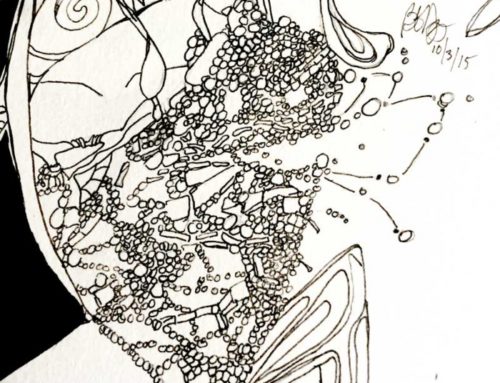There is a lot to consider when developing games. It can even get to the point where all of the tasks begin to feel completely overwhelming. This is especially the case when it comes to visual novels. And yet, it’s the anxiety of those unknowns that get in the way of our best work. I am finding that with game development, regardless of project scope, this is also no exception. There is a lot of dangers in facing the unknown but, the solution is taking the time for Pre-Planning what’s to be done for your game!
There is a lot at stake here. What if people aren’t interested or don’t even care for the games/stories you want to create? What if it just flat-out sucks? Can you even recoup all the money spent on this venture? What if, what if, what if?!
Doing anything without a compass or map is utterly terrifying, but letting our inner demons of negativity get the better of us, is one way of making sure we stop our creativity. A lot of times, anxiety allows us to quit before we can even get ahead! It stops us from moving forward towards our dreams and goals.
If we can’t find a map, then we should make one!
When it comes to the development side of creating games, there is quite a lot of ground to cover. Especially when you’re just starting out and the only person to look to for help is yourself. Where do you even start? Do you create your illustrations first or do you write the story? What about multitasking? Where do you go for help? What about funding? Where do you go for resources and materials? By the time you realize that you’re suffocating with all of these unknown variables, you’re probably on the verge of wanting to quit before you really get started.
The Pre-Planning Phase of Game Development
The best thing about creating your own game is that anything goes. The bad news, well, anything goes, but there are things that you can do right now to make your journey a bit easier. Pre-production is all about ironing out all the little kinks of your project early on. To a lot of people, planning any kind of project is a nuisance. However, you will almost always find that those who pre-plan their projects and hit their milestones are the ones who succeed in the long run. In other words, take full advantage of the Pre-Planning Phase! There are many ways people go about working on the early stages of game development, but the ideas are pretty much the same. In the pre-planning of game development, your task is to figure out how much work, resources, and capital is needed to see your project to the end. You figure out exactly how big of a project your ideas and vision are going to undertake. How many levels/scenes, chapters are needed? Exactly how many characters are needed to effectively tell your story? What backgrounds/worlds need to be designed? What type of coding does the game require? And so forth and so on. All of these things and more are so important to consider during the pre=production phase of any given project, therefore, take the time to do this for your game as well. It will save you a lot of time and money in the long run! Currently, I am working on the pre-planning phase for my project and have come up with some questions to use for my strategy. Maybe answering these will work for you. Here are a few lists of questions and topics to consider when planning out a game. List out everything and anything you could possibly want in your game. Most likely, you already have strong ideas for your game. List them out! Consider it the ultimate project where there is not budget holding you back and the world is your oyster. If that is the case: Do your homework! What titles grab your attention? Take the time and do your research. You need to know who your competitors are and try to find ways to make your game stand out. Nine times out of ten, your competition will have a better access to a lot of capital and resources. This is the time where you will have to think outside the box and come up with ideas and strategies of your own to help you stand out as well. I know that a lot of people think negatively of game reviews from game critics, but try to keep an open mind. These critics see thousands of games and have a wealth of information to give you as a game developer. A lot of times they will even discuss things about games you wouldn’t have even thought of. Looking at reviews of games in your genre will give you plenty of ideas of what pitfalls to stir clear of and possible new directions to look into to make your game unique. For example, critics and reviewers can share: What I mean is DO go out and actually play the games in the genre you want to sell. DON’T just play the game only for enjoyments sake. As you play, write down: These questions are a great start in beginning your pre-planning phase for your game. It’s a lot to take in but in the end, this will help you start finding ways to make your game stand out from the others flooding the market. There are more things to discuss on the planning phase of game development so stay tuned for that. And that’s about it for this installment of Creating Visual Novels. But, before I let you go, I want to leave you with some more food for thought. I found an article on envatotuts+ by Steven Lambert that further talks about game development that you should check out, so I will leave the link here. This article is more thorough and hits on all stages of game development. It even discusses game planning! And as always, if you have tips of your own that you want to share or questions, leave it in the comments below. Until then, I hope you have a fantastic week and I wish you happy designs and stress-free coding!What exactly is Pre-Planning?
What Is Your Ultimate Dream Game!

Research Games In Your Genre

Look At What Gamers, Critics, and Game Streamers Are Saying About The Latest Games!
Experience The Games In Your Desired Genre First Hand!

Conclusion





